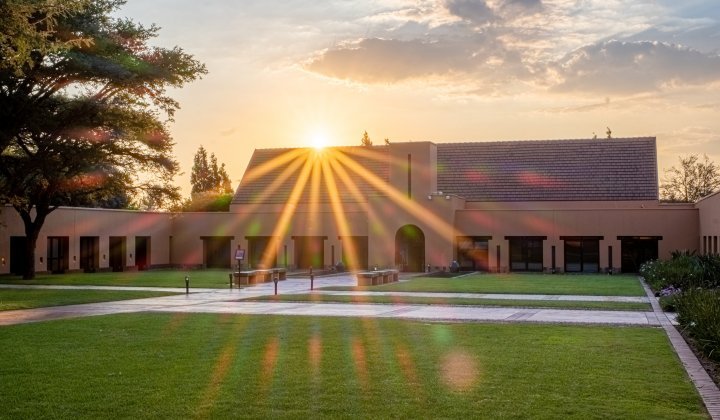Its purpose is to square up to the issues of building businesses and understanding context in a fast-growing, rapidly changing environment. Africa is an intricate and complex setting. What’s the old joke – how many countries are there in Africa? The answer – one. The reality is radically different: 54 countries, 1.3 billion people and immense diversity. On one hand, you have Ethiopia and Rwanda, having grown at 9% and 7% respectively per year for the last 15 years. On the other hand, their almost-neighbour, South Sudan, which for all intents and purposes is a failed state.
If your strategy or narrative is ‘business in Africa’, the immediate questions become “Which industries? Where? When? How? Which segments or communities? And with which companies or partners?”
It’s a complex problem, then. How do you intend to approach it?
From multiple angles. Understanding context is about the economic environment and the policy setting. The economic environment includes economic growth as an obvious high-level marker. But on the west coast of Africa you have the enormous Nigerian economy and equally large population that is dominated by energy resources. While on the east coast, by contrast, you have a much smaller population in the shape of Kenya and a far more diversified economy. Kenya’s historical path of development is in the agricultural sector which has accounted for one-quarter of the country’s output, three-quarters of its employment and two-thirds of its exports. But new drivers of growth and development take the form of tourism, business services, infotech and logistics.
As well as understanding economic performance and industrial make-up, you need to understand history, because history shapes a range of attributes all the way from political institutions and legal arrangements through to physical infrastructure. For instance, the smallest country on the mainland, The Gambia, is shaped unlike any other nation in the world. It is long and skinny, just 50 kilometres wide at its widest points; it looks like someone tried to stick their finger into Senegal, which surrounds the Gambia on three sides. The only bit of the country that doesn’t border Senegal is the Gambia’s very short coastline.
Another aspect of context is population size, culture and demographic structure. It stands to reason that a large part of sub-Saharan Africa is represented by young and still-growing populations, which make for very different market proposition and business models compared to populations that have achieved demographic maturity, such as Europe, North America and large parts of Asia.
Geography matters, too: who are the neighbours? Are we connected or isolated from neighbours? Is our neighbour the ocean? And if it is the ocean, where does that transport corridor take us? And that in turn throws up many key business implications. For instance, drawing on the above example of the Gambia, if you want to get from the north of Senegal to the south of Senegal, the shortest route is through the Gambia.
Conversely, if we go back to the obvious point of Ethiopia: here is a landlocked country that is growing extremely quickly and setting up its capital, Addis Ababa, as the transport hub for Africa, connecting seventy global cities to sixty African cities. No other city in Africa that does that, positioning Ethiopia and Addis Ababa as ‘the Dubai of Africa’.
From time to time, we hear the ‘Africa Rising’ narrative, but almost immediately there does seem to be a tendency to revert to corruption, poverty and violence. Or is that a misperception?
This is exactly why a deep understanding of context is critical. By way of example, in the space of three years, Kenya moved 49 places in the World Bank’s Ease of Doing Business Index, from 129th to 80th in the world. You don’t do that by becoming increasingly corrupt. It’s simply impossible to make those kinds of gains if corruption is the order of business. As a rule of thumb, the last two decades have seen Africa’s political institutions become stronger, and you’ve seen that evidence in a range of places. A great case in point was Nigeria’s change of government in 2015, from Goodluck Jonathan to Muhammadu Buhari. That speaks of political maturity but – in the same breath – political, religious and ethnic violence continue to affect many parts of Nigeria.
In the case of Rwanda, Paul Kagame is a head of state who’s been in place since the early 1990s, yet he has overseen exceptional economic growth and transformation.
A little further south, in Zimbabwe, you have a recently pushed-out head of state, Robert Mugabe, who oversaw 30 years of economic collapse and institutional hollowing-out. Whether his successor, Emmerson Mnangagwa, will be able to reverse this deep scarring remains to be seen.
Each of these countries is remarkably different and that’s why understanding and appreciating context is so vitally important. Whether you are a local or foreign investor, your point of departure has to be: “Do I understand this market? What defines and drives this community or society? How do the jigsaw pieces fit together?” The Centre for African Management and Markets is not about ‘going into Africa’; it is about understanding the drivers and determinants of economies and of the forces that are shaping socioeconomic progress and prosperity throughout the continent.
Are there countries which can play the role of regional role model, the kind that was so crucial of Southeast Asia’s success story?
Southeast Asia is rich in role models: Japan, furthest back, more recently South Korea, and possibly we can add to that list smaller economies such as Taiwan and Singapore.
To this end, a similar question was recently put to Paul Kagame, who was asked if, in 20 or 30 years, “will Rwanda be the Switzerland of Africa?” His answer was profound: “No, it will be the Rwanda of Africa.” To me that says we find ourselves in the midst of building some quite compelling role models and extraordinary cases. Rwanda comes from the devastation of the early 1990s and the genocide, to have achieved 25 years of uninterrupted economic growth. That presents itself as a potent role model.
Ethiopia, more recently, is making the waves and noise of being a role model, with its rapid industrialisation and achieving one of the fastest gains in connectedness and economic integration with the rest of the world. It’s also showing that it can work on improving not just economic performance and economic structure, but institutional performance and institutional structure. Without question, there are examples to look up to, and in the same breath, there are examples of what not to do. South Sudan and Somalia are obvious cases in point.
Many African countries seem to have a problematic relationship with democracy. Ethiopia, is one, Rwanda, another. Is democracy necessary for economic success?
For the past ten years, one of the projects we have been working on involves understanding the relationship between political arrangement and economic performance. Let me quote Zambian-born economist Dambisa Moyo, who argues against “shoehorning democracy” and offers compelling evidence that maps out the relationship between political arrangement and economic performance. The argument is that if you put a democratic arrangement into a fragile economic setting, it is the economic setting that will trump the political arrangement. In fact, to achieve and sustain democracy, you need to first get in place a stable and healthy economic arrangement that feeds and supports stable institutions. It is this at that will feed democracy rather than the other way around.
Five or ten years from now, what would tell you that the new Centre for African Management and Markets has been a success?
The centre is about developing understanding, establishing networks and building relationships; those are our obvious markers. If we have achieved a deeper, more refined understanding of the context of what works, why it works, where it works and how it works, then I think we could claim some success. Behind all of this is the importance of networks and relationships across all organs of society, including business, social institutions and political organs.





